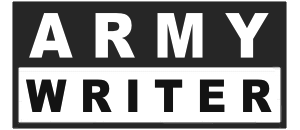In order to counsel someone for a bad attitude, the counselor must be specific and focus on actions rather than attitude. Write down specific verbal and physical behaviors and actions that affect others, hurt team morale, or damage productivity. Also record nonverbal behaviors, such as eye rolling, clenching fists, or walking away.
During the counseling session, describe the behavior that is offensive and tell the Soldier that it must stop. Explain how it's causing a problem and the consequences of further offensive behavior. Help the person by suggesting solutions to the problem such as alternatives to the offensive behavior.
The work environment should be as pleasant as possible for everyone who works here and should be consistent and supportive for everyone. To help make this happen, we have protocols, customs, and courtesies. While some of these courtesies may seem unneccessary to you, they may be necessary for others and you should follow them for their benefit.
While I appreciate your involvement and efforts to improve operations, your actions are sometimes interfering with the smooth operation of our workcenter or offending your peers or superiors. In specific:
1. You argued with SSG Blake and others several times about what needed to be done. Your lengthy arguments caused unnecessary delays to the work being completed and was disrespectful to your peers and supervisors. It is disrespectful because it implies that your coworkers and supervisors, who have worked here much longer than you, are not as smart as you or inexperienced. In addition, your questioning of his instructions undermines his authority.
If the shift supervisor tells you to do something, don't argue with him. If you think a mistake is being made, you may bring it to his attention. However this should not take longer than 30 seconds and should only be done ONCE. If he disagrees with you, you must follow his directions immediately and without complaint. If you continue to question directions or fail to follow your supervisor's instructions, more serious consequences will follow.
2. On November 27, you walked away from a cleanup detail because it was "not part of my MOS". If everyone in the Army refused to do anything that was outside their MOS, the Army would fail in a day. Everyone in the Army, from the Privates to the Generals, at one time or another and often for months, has worked outside their MOS. You did not pull your weight and your peers had to do the work you should have done.
This affected morale because many of your peers noticed and felt that standards were not being applied equally. This is detrimental to a healthy work environment. In the future, you must follow the example of those who went before and follow directions. If you fail to follow your supervisor's instructions, more serious consequences will follow.
3. When your shift supervisor or others call you, you often respond with "WHAT?!". Some people perceive that as a challenge. Instead, respond with "yes" or "what can I do for you" or something similar.
4. You often address SFC Michaels as Clark. Don't address anyone who outranks you by their first name even if their peers do. Address all NCOs by their rank and last name. Treat all NCOs with the same and equal respect.
In summary, I don't think you were aware of how your behavior affected your peers but now that you are, I look forward to your continued contributions to the unit.


